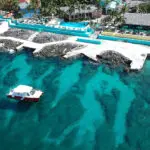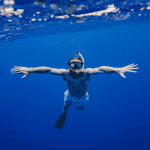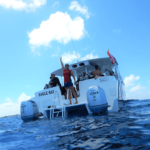Blue, sunny skies and breathtaking azure seas are waiting for you here in Grand Cayman. And beneath the ocean’s surface lies an underwater world of coral formations and diverse marine life. Of course, you must protect your skin with sunscreen when you’re outside enjoying the unforgettable adventures our island offers — but it’s vital to do so without endangering the fragile marine ecosystems that attracted you to Grand Cayman in the first place.
To help keep our ocean life happy and thriving, it’s important to use reef-safe sunscreens. If you’re unfamiliar with these products or haven’t heard of them at all until now, you’re in the right place! In this blog, we’ll share all the details you need to know.
Scroll down to find out what reef-safe sunscreen is and why it’s so important. And if you have any questions for the Sunset House team about our Grand Cayman diving trips or Dive+Stay custom Grand Cayman dive packages, please get in touch for the answers you need.
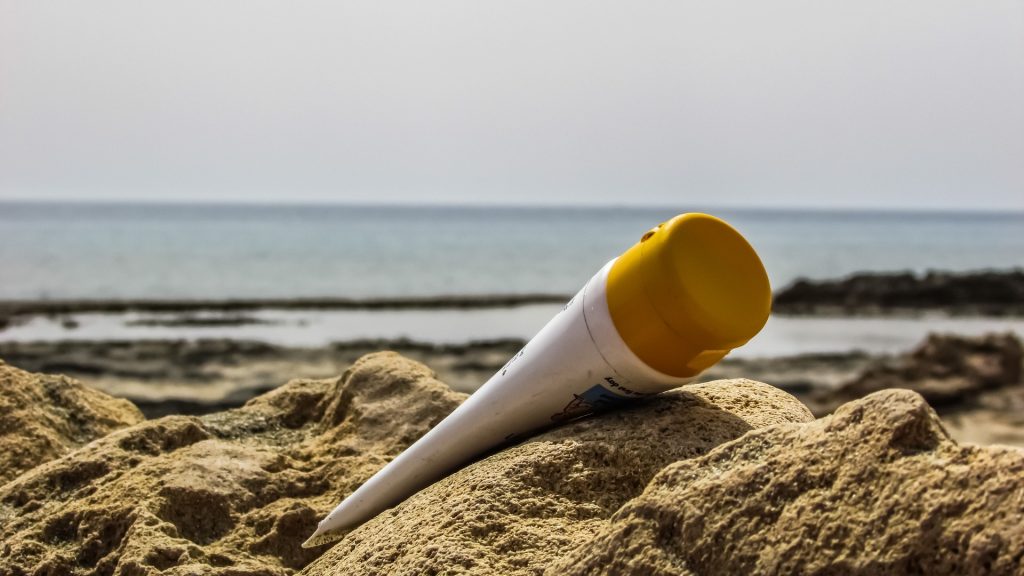
What is Reef-Safe Sunscreen?
“Reef-safe” or “reef-friendly” sunscreens have been specially formulated to minimize damage to coral reefs. They do not contain harmful chemicals like oxybenzone, octinoxate, and octocrylene. Some studies have shown that these common UV-blocking chemicals can cause coral bleaching and harm marine life.
Instead of these chemicals, reef-safe sunscreens use physical UVA and UVB filters. These include active ingredients such as titanium dioxide and zinc oxide. Whereas chemical filters absorb UV, turn it into heat, and release it from the skin, physical filters create a barrier on the skin, shielding the skin and preventing the absorption of UV rays.
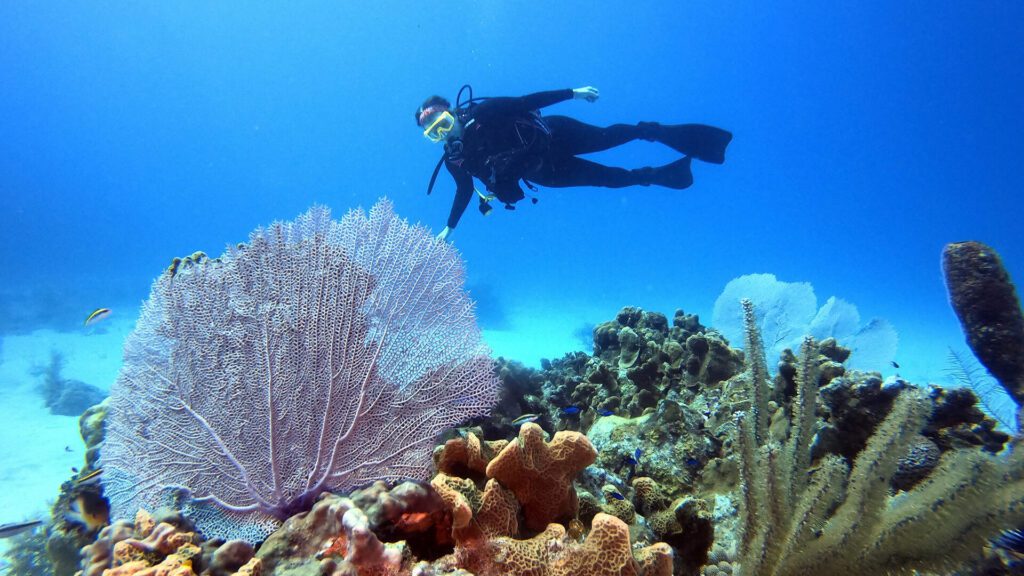
Why is Reef-Safe Sunscreen Important?
Picture this: vibrant coral reefs teeming with life, from colorful fish to majestic sea turtles. Now, imagine those same reefs bleached and lifeless, struggling to survive under the stress of climate change and human activity.
Coral reefs are as rare as they are spectacular. They occur in less than one percent of our planet’s oceans, yet they are home to almost one-quarter of all sea species, including these aquatic animals you will encounter in Grand Cayman. Any loss of these remarkable habitats endangers the creatures living in them, but will also have a huge impact on the communities who rely on them economically.
Reef-safe sunscreen plays a crucial role in protecting these ecosystems. By choosing sunscreen free of harmful chemicals, you can help preserve coral reefs for future generations. Plus, you’ll still get the sun protection you need without compromising on performance.
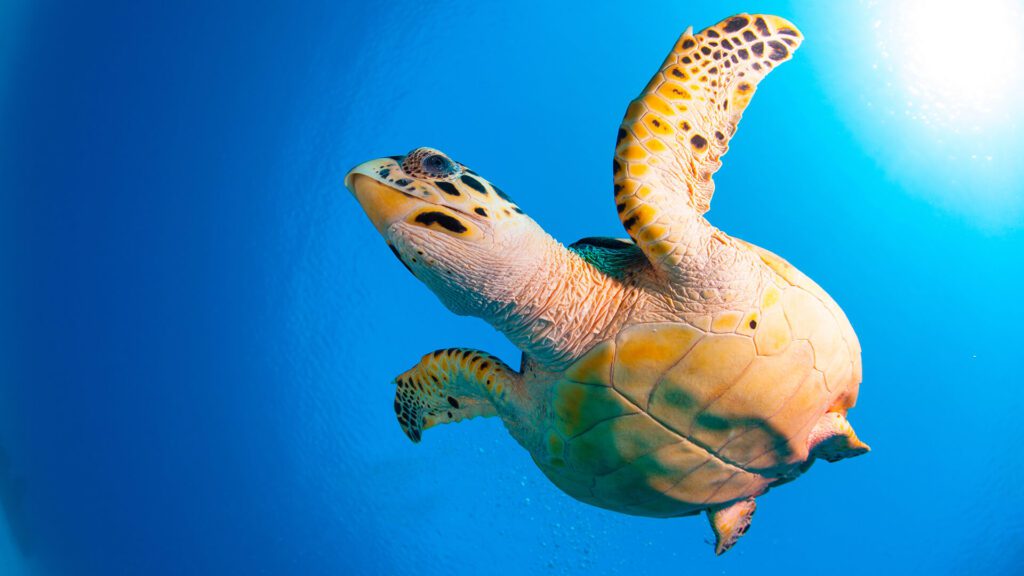
How Do I Know if My Sunscreen is Reef-Safe?
Choosing reef-safe sunscreen is easier than you might think! Look for products labeled “reef-safe” or “reef-friendly,” and check the ingredients list for the harmful chemicals mentioned above, primarily oxybenzone and octinoxate. Conversely, look for mineral-based ingredients like zinc oxide or titanium dioxide.
The size of the minerals is also key here. Look for micro-sized mineral sunscreens — you may also see this listed as “non-nano” — to avoid nanoparticles. In high concentrations, these small particles can be toxic.
Other harmful substances to watch out for on sunscreen labels include:
- Octocrylene
- Homosalate
- 4-methylbenzylidene camphor
- Parabens
- PABA
- Triclosan
At Sunset House, we understand the importance of protecting our marine environment. That’s why we offer reef-safe sunscreen, so you can enjoy the sun responsibly during your stay, whether it’s on one of our Grand Cayman diving trips, visiting the best places to snorkel in the Cayman Islands, or any other adventures.
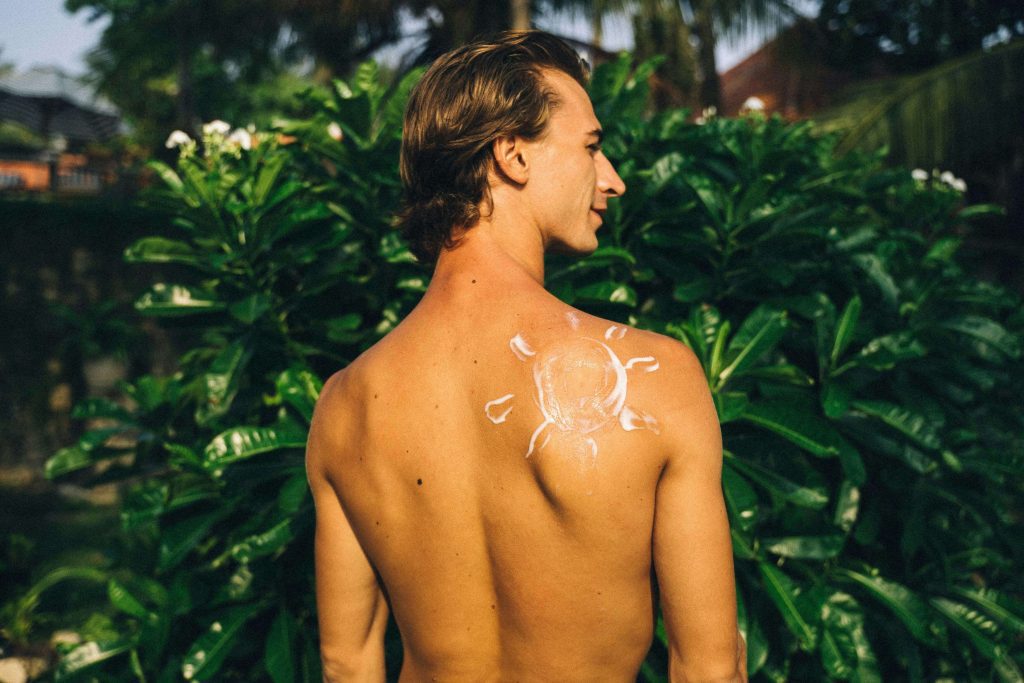
Why We Need to Protect Coral Reefs
Coral reefs are often called the rainforests of the sea, and for good reason. These underwater ecosystems are home to a staggering diversity of marine life, providing food, shelter, and breeding grounds for countless species.
But coral reefs are facing unprecedented threats, from rising sea temperatures and pollution to overfishing and coastal development. Every year, millions of tons of sunscreen wash off swimmers and divers into the ocean, posing yet another challenge to these fragile ecosystems.
In addition to the loss of marine life and the impact on communities near reefs touched on above, a loss of coral reefs may also expose coastlines to new risks. Reef formations are an excellent natural defense against the ocean as they dissipate around 97% of wave energy. This is best observed from overhead — you can see waves breaking on the ocean side of the reef, while the land side typically consists of relatively still water.
A weakening of this natural defense as climate change increases the occurrence of storms (and their intensity) poses a bigger threat to the coastline and the communities built around them.
Put simply, the loss of coral reefs is a calamity for marine and human life. From the UN Environment Programme to BBC Earth, it’s easier than ever to find reliable resources on the topic from trusted outlets. By choosing reef-safe sunscreen and supporting conservation efforts, we can all play our part in helping to protect coral reefs, ensuring they thrive for generations to come.
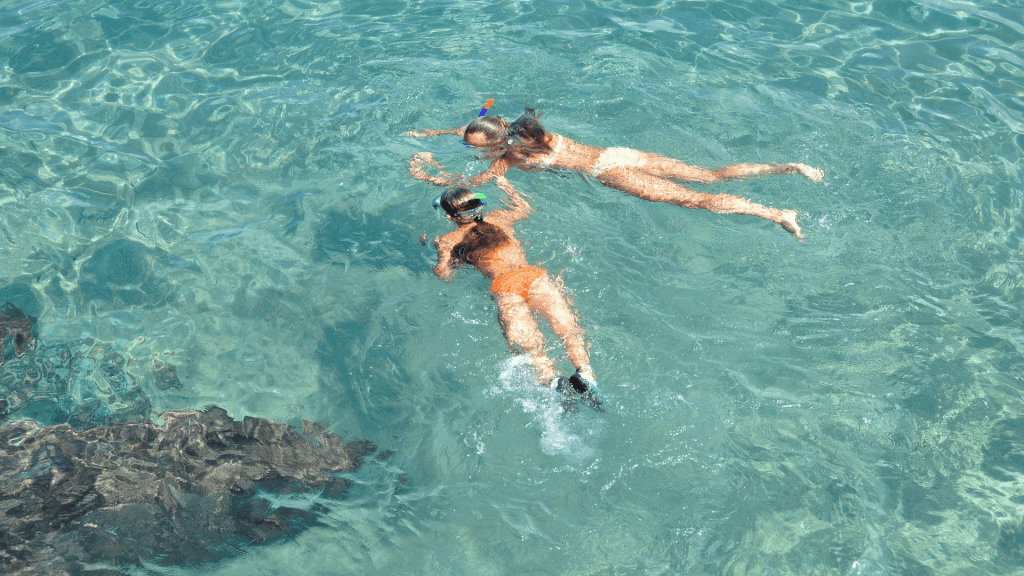
5 Reasons to Use Reef-Safe Sunscreens
- Gentle on coral reefs and ocean life: Traditional sunscreens containing harmful chemicals can contribute to coral bleaching and endanger marine life. Reef-safe sunscreen, on the other hand, is formulated to minimize environmental impact, so you can enjoy the ocean responsibly.
- Reduce your risk of skin cancer and premature aging: Sunscreen is your first line of defense against the sun’s harmful UV rays. By using reef-safe sunscreen, you can protect your skin from sunburn, skin cancer, and premature aging without compromising on efficacy.
- Improve skin health and natural glow: Reef-safe sunscreen is often formulated with nourishing ingredients like antioxidants and moisturizers, promoting healthier, more radiant skin. So, lather up and soak in the sun safely!
- Pregnancy-safe and suitable for sensitive skin and children: Many traditional sunscreens contain chemicals that can harm pregnant women, individuals with sensitive skin, and children. Reef-safe sunscreen offers a safer alternative.
- The best long-term value for money: The best reef-safe sunscreens don’t contain synthetic fillers or unnecessary water for dilution. This means that, for the same volume of sunscreen, you still get the required sun protection and a product that lasts longer. Just remember, a little goes a long way!
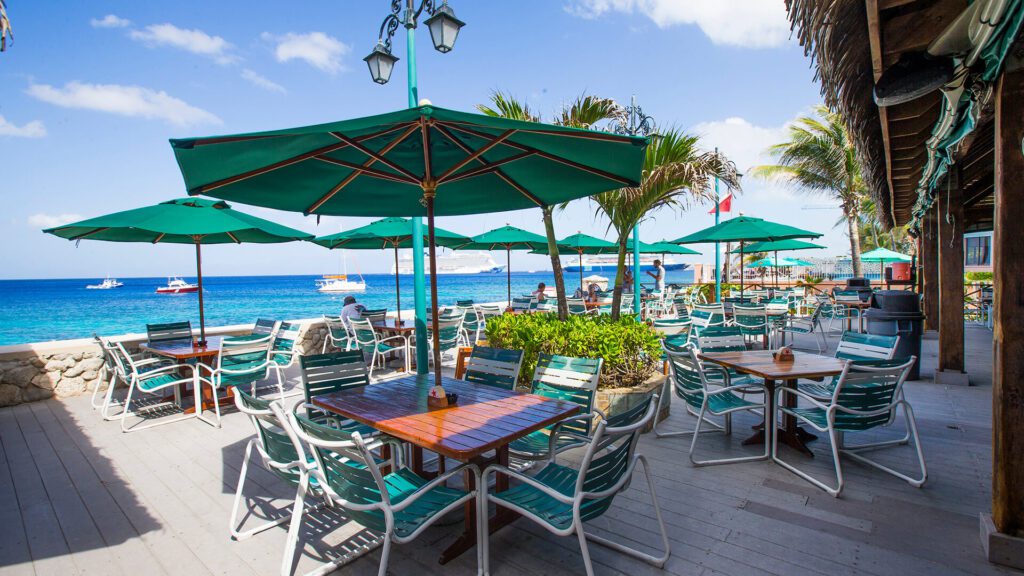
Book Your Stay and Activities at Sunset House, Grand Cayman
We hope this guide to reef-safe sunscreen has shown you just how important it is for ongoing reef protection and conservation. At Sunset House, we’re committed to sustainability and responsible tourism, so we encourage all our guests to choose reef-safe sunscreen and join us in protecting our precious marine environment.
Are you ready to book your stay with us? We can’t wait to welcome you! Start planning your vacation by browsing the rooms at Sunset House. You can also combine your accommodation and diving trips as part of a Dive+Stay custom Grand Cayman dive package.
The Sunset House team is here to help however we can. Please don’t hesitate to contact us if you have any pre-booking questions.




